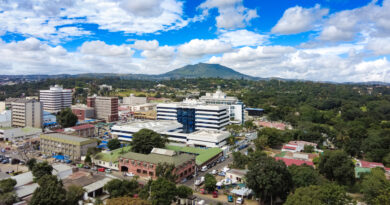Malawi Government Criticized Over Delayed Affordable Inputs Programme (AIP) Rollout
The Civil Society Network on Agriculture (CisaNet) has expressed deep concern over significant delays in the Affordable Inputs Programme (AIP) rollout by the Malawi Government. CisaNet, an organization dedicated to advocating for agricultural policy and smallholder farmers’ rights in Malawi, is addressing critical issues impacting rural communities.
In a statement by HERBERT CHAGONA, CisaNet’s board chairperson, the government’s failure to determine fertilizer prices under the AIP, with only one-and-a-half months left before the rainy season, is of great concern. Timely access to affordable fertilizer is crucial for farmers’ preparedness for the planting season. The delay has left farmers uncertain, endangering their planning.
Smallholder farmers, the backbone of Malawi’s agriculture, heavily rely on the AIP for affordable inputs, vital for their families’ well-being and food security. Delayed price determination could lead to reduced yields and increased food insecurity.
The recent announcement to remove one million AIP beneficiaries by the government has raised concerns within CisaNet’s network. The timing and transparency of this process are questioned. Timely beneficiary list release is essential to allow those excluded to make alternative plans, preventing severe consequences for vulnerable households.
Malawi has received 40,000 tonnes of fertilizer donations from Egypt and Russia. While appreciated, integrating these donations into the AIP remains unclear. Clarity is essential to ensure these donations benefit intended beneficiaries. The government should outline a clear plan for their fair distribution.
Previous AIP implementations faced chaos, leaving many farmers near hunger during the lean season. CisaNet emphasizes the need for the government to apply lessons learned and address outstanding refunds to restore public trust.
CisaNet urges government transparency and accountability throughout the AIP process, including information on fertilizer stocks and regular progress updates. The AIP’s success is vital for poverty reduction, food security, and economic growth.
In light of these concerns, CisaNet calls on the Malawi Government to prioritize AIP implementation, ensuring self-sufficiency and food security. CisaNet remains committed to collaborating with the government for the program’s success.
CisaNet is a coalition of civil society organizations facilitating engagement between CSOs, the government, and NGOs in the agriculture sector.



